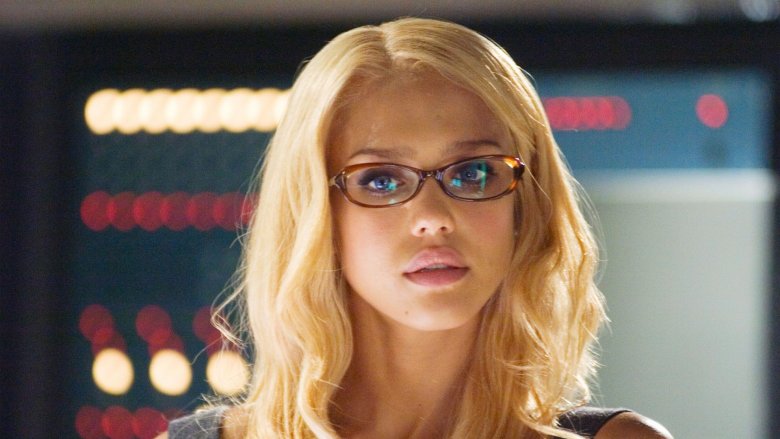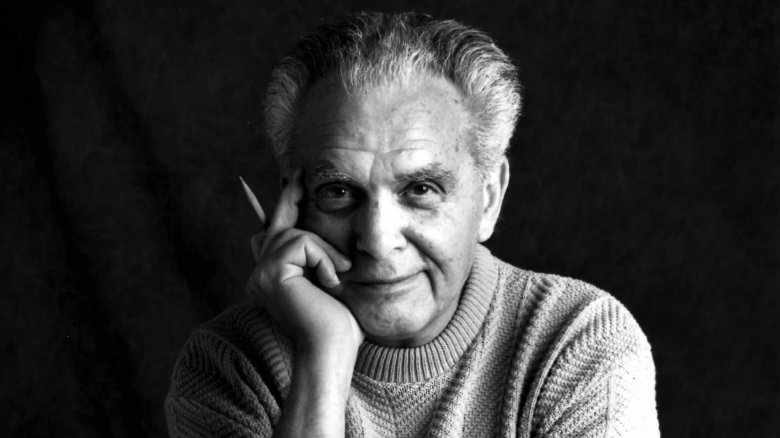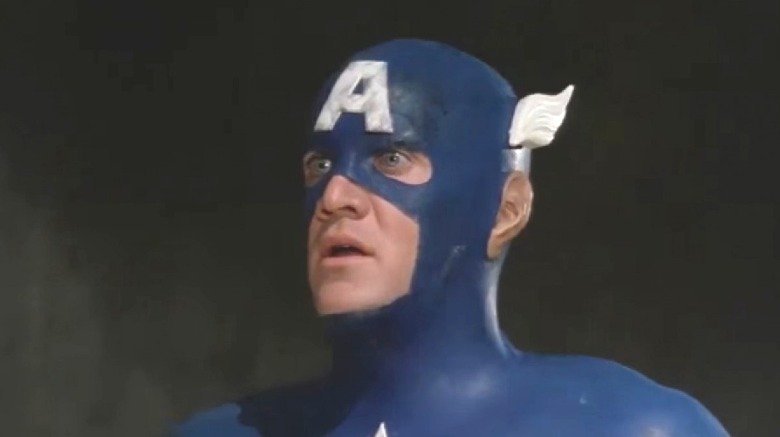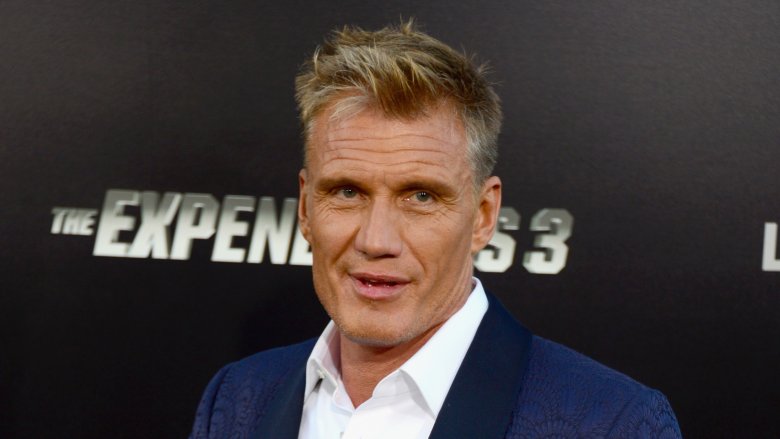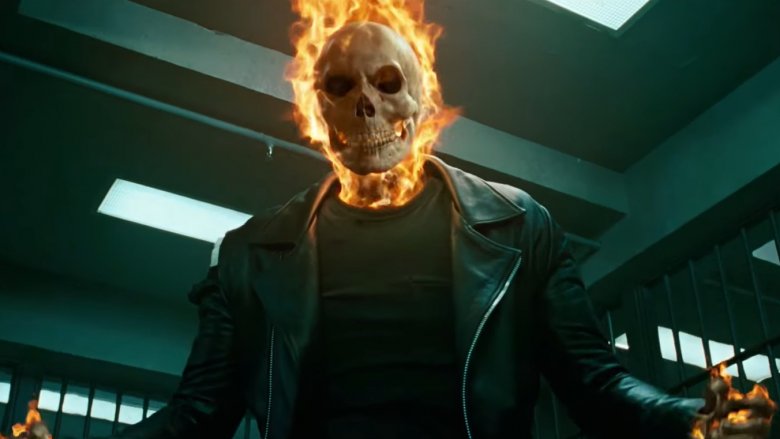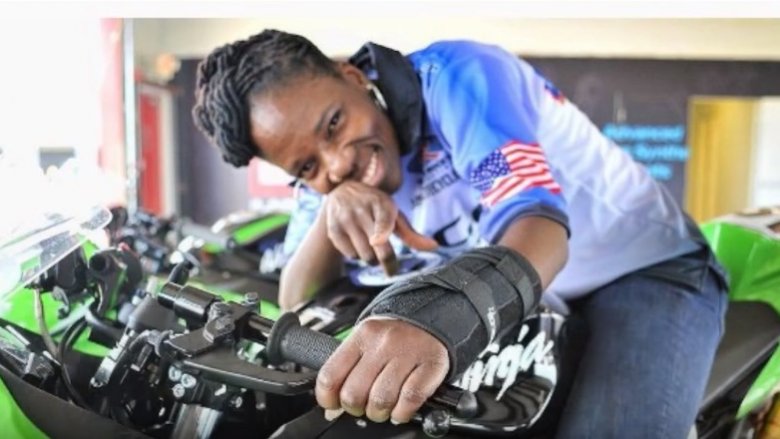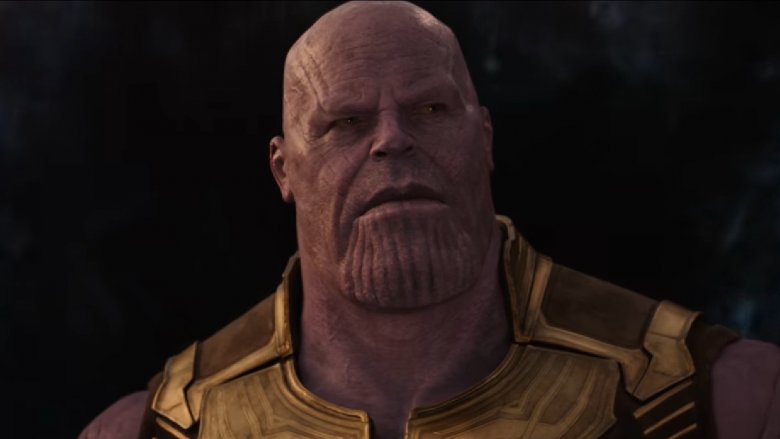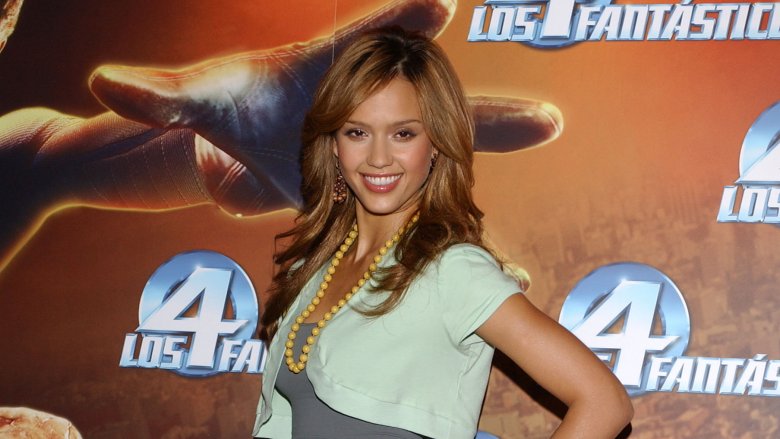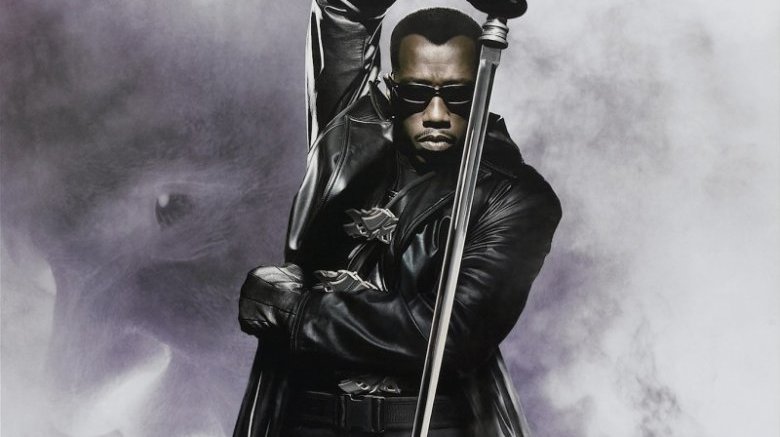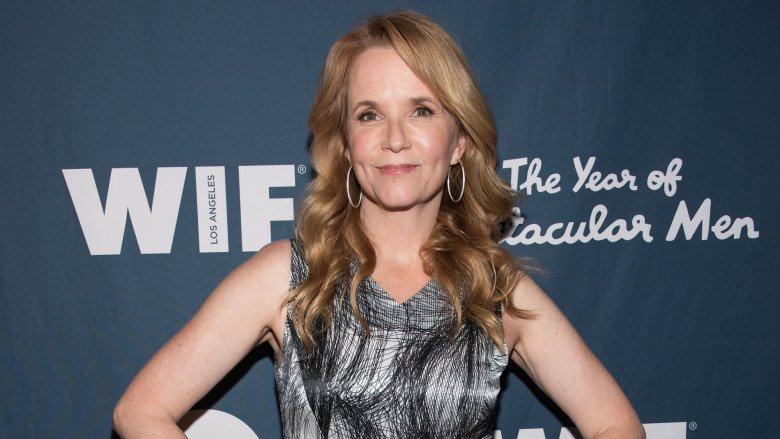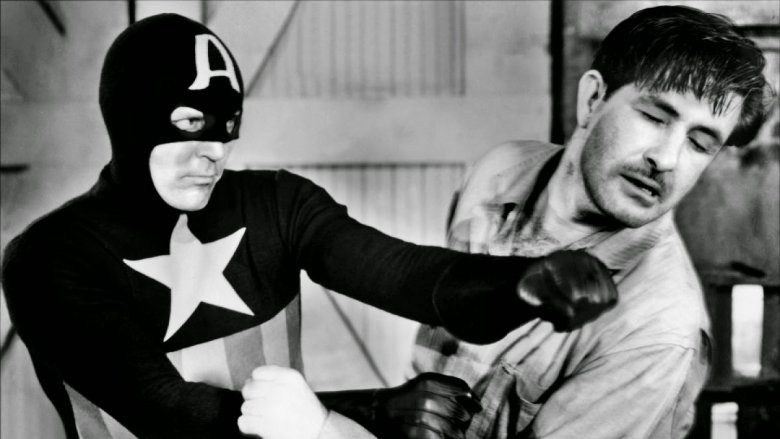Lives Destroyed By Marvel
We may receive a commission on purchases made from links.
When Marvel Comics was founded back in 1939, it was called Timely Comics and you may be surprised to learn that, for those first several years, it produced not a single billion-dollar movie franchise. Oh, how times change. A lot has happened between then and now. Many of those changes happened in the 1960s when they officially branded as Marvel Comics in an effort to stay relevant against their DC Comics competitors. Creators like Jack Kirby, Steve Ditko, and Stan Lee took the creative reins to make many of the characters that still entertain people today like Spider-Man, the X-Men, and the Fantastic Four, if we pretend anyone was entertained by the four awful Fantastic Four films that have been made.
While Marvel has grown beyond belief and made many artists, writers, and their creations household names around the world, it's not all sunshine and X-Men. A number of people have run afoul of the company over the years, intentionally or otherwise, and suffered some pretty devastating fates as a result. You don't always need the help of Thanos to make someone's life a living hell. Sometimes you just need creative differences, the legal system, or some really bad luck at making movies.
Jack Kirby created everything and made nothing
Marvel Comics is Jack Kirby; that cannot be denied. These days a lot of people recognize Stan Lee as the face of the comics giant, but Lee was always more the hype man than the brains. Kirby was the artistic tour de force who helped Lee invent Marvel's massive stable of characters and bring them to life on the page. At the very least, he deserves a full 50 percent of the credit for what Lee is famous for, and arguably did much more. So it's tragic to know he got so very little for his work.
Kirby was never a fan of Lee's but couldn't get a job at DC, the "good company," and Lee was probably only there because he had a family connection to Marvel. Pushed together with a few others, they created what are now the icons of comic books — Hulk, Captain America, Thor, and literally hundreds more. But Kirby was a work-for-hire employee. He worked out of his own house, bought his own supplies, and was paid per page as they were accepted, according to The Hollywood Reporter. He got no benefits, no time off, and he certainly wasn't part of the multibillion-dollar enterprise it is today.
Jack Kirby died in 1994. It wasn't until 2014 that Marvel, heading off a case that was on its way to the Supreme Court, finally settled with Kirby's heirs.
Captain America ended Matt Salinger's acting career
The Marvel Cinematic Universe as we know it kicked off with 2008's Iron Man. That was not, however, Marvel's first foray into filmmaking. Not by a long shot. 1986 saw the release of Howard the Duck, a curious choice by anyone's standards. Three years later we got Dolph Lundgren as the Punisher. In 1990, we got Captain America starring Matt Salinger, a film that is still infamous today for its unadulterated awfulness.
Salinger, son of author J.D. Salinger, has gone on record about how preposterous the whole experience of making the film was. This predated Marvel's huge budgets and top talent signings. Shoots were canceled and rescheduled, and eventually they ran out of money. The much-hyped movie, which had been scheduled for a theatrical release, was instead released straight to home video.
Salinger told GQ that, though he's not bitter, his experience with Captain America was a good example of how, as an actor, you're powerless to make a good movie. That, he felt, was a stepping-off point for him to stop acting professionally altogether. He opted instead to move toward producing and only act "for fun" because he realized being an actor for a living would just be too frustrating. We're obviously glad Salinger found something worthwhile to do, but it's a bummer to see talent get bumped out like that. While the Red Skull was unable to defeat Captain America on the screen, bad filmmaking did the job behind the scenes.
Dolph Lundgren's career was punished
Everyone knows Dolph Lundgren's name. He had probably his most iconic role ever in Rocky IV as Ivan Drago, and then a memorable follow-up as He-Man. In 1989, Lundgren made The Punisher and it's worth noting that, aside from a handful of forgotten flicks, the next time most people saw Lundgren in theaters was in 2010's The Expendables. That's a big gap.
The Punisher was just a weird movie all around. Lundgren's Frank Castle never wears the iconic skull emblem on his chest, and you also have to endure a weird nude scene where you see more of Lundgren than you need to.
This movie didn't ruin Lundgren's career outright — he kept doing direct-to-video movies pretty steadily for decades — but it arguably stopped his time as a big screen movie star. The Punisher came out the year after Tim Burton's Batman, which set a high bar for comic book adaptations. Punisher was a big disappointment, drawing only weak reviews, and the production was a mess. Den of Geek details a small budget, script rewrites, and all kinds of corners being cut that meant the movie was pretty much destined to fail and take Lundgren with it.
Gary Friedrich got ghosted
Back in the 1970s, Marvel was doing some pretty weird stuff. In fairness, pop culture overall was pretty weird in the 1970s, so none of this seemed exceptionally out of place. In their quest to create new and interesting stuff, writer Gary Friedrich came up with an idea for a new character in 1972 — a motorcycle-riding daredevil who, after a deal with the devilish Mephisto, becomes the flamey-skulled hero Ghost Rider!
Ghost Rider has endured since the 1970s and even got two turns on the big screen with Nicolas Cage in the lead role. Now maybe those movies weren't very well loved, but they still existed and the first movie actually made around $230 million worldwide, according to Box Office Mojo. That's a lot of money, and Friedrich wanted a piece.
In 2007, Friedrich filed a lawsuit claiming Ghost Rider's rights reverted to him in 2001, and therefore Marvel owed him big time. He said they never registered the character with the copyright office. A judge disagreed, saying Friedrich handed over rights when he endorsed certain checks that said the rights belonged to Marvel. Oops.
Now, instead of getting money, Friedrich found himself being sued by Marvel for his unauthorized use of their character. He had to pay the company $17,000 and agree to stop selling Ghost Rider merch at conventions, according to CBR, and even stop promoting himself as Ghost Rider's creator for financial gain, effectively stripping him of his legacy.
S.J. Harris' stunt went terribly wrong
S.J. Harris was the first African-American woman to work as a professional motorcycle racer and had logged over 1,500 hours of racing in her career. It was that skill on a bike that netted her a job working on Deadpool 2. She was to be a stunt double for Zazie Beetz's Domino during a motorcycle racing scene. It was the first movie she'd ever done as a stunt performer.
What should have been the beginning of an exciting and awesome career took an extremely tragic turn on August 14, 2017. As MovieWeb explains, Harris was supposed to drive through a door, down a ramp, and then down some stairs on a bike, stopping at the bottom. The stunt had been rehearsed flawlessly five times. However, on the next run, something went wrong. Harris continued past the stopping point and down another ramp and some more stairs before crossing a road and colliding with a curb. The force of impact launched her from the bike and into a window. Harris never exceeded 10 mph, making the whole thing a bizarrely freakish accident. She died as a result of her injuries. She was only 40 years old.
Deadpool 2 features a post-credit tribute to Harris dedicating the film to her memory.
Jim Starlin got Thanos-snapped out of Marvel
If you're not a big fan of comics you may not know Jim Starlin's name, but you've probably seen his work. During his time at Marvel, Starlin was responsible for a lot of quirky and far-out storylines, some inspired by the illicit substances Starlin and friends were fond of during the 1970s. One of the characters he created and would keep bringing back in his books? The Mad Titan himself — Thanos.
Thanos has been absolutely integral to the Marvel Cinematic Universe, building up across years and multiple movies before Avengers: Infinity War fully introduced him. But all that hype hasn't been very rewarding for Starlin, who has a famously rocky relationship with Marvel. He's quit working for Marvel numerous times over the years after disputes and swore in 2018 he'd never make another comic for them. The reason? While working on his own Thanos title, Marvel had someone else start a second Thanos book with extremely similar plotlines, according to Vulture. Starlin believed Marvel was undermining his story, and enough was enough. Starlin already felt that Marvel had shafted him on royalties; after a long history of disagreements, Starlin has abandoned his life's work to move on.
Jessica Alba wasn't so fantastic
The Fantastic Four is an exceptionally weird Marvel property. Started in 1961, it was the first big superhero team book under the Marvel label. It was only natural that a movie might be made sometime and man, did they ever try to make this into a movie. Four different Fantastic Four films have been produced, and every one of them sucked. If you add up the Rotten Tomatoes scores of all four, you only get 102. The highest rated on its own has a dismal 37 percent. The lowest is 9 percent.
In two of those films, Jessica Alba played the role of Sue Storm. The movies were critical failures and the sequel effectively killed the franchise with that particular cast. Alba later said Rise of the Silver Surfer made her want to "stop acting," explaining how awful it was working with the movie's director, who asked her to do things like look prettier when she cried. It all drove her to the point where she had no interest in being in the business anymore.
Of course, Alba has plenty of money and she didn't fully leave show biz. She's also been in more than her fair share of poorly received movies like Good Luck Chuck and The Love Guru, but the fact she singled out Fantastic Four as the movie that seemed to break her spirit is certainly no badge of honor for Marvel.
Wesley Snipes' career got staked
You could make a very good argument that Blade, one of the earliest Marvel Comics movies, is actually an exceptional film and that Wesley Snipes was pretty awesome in the title role. You could even make a case that the second movie, directed by Guillermo Del Toro, was also a pretty fun flick. But when you get to Blade: Trinity you're running out of things to make cases for. It was the first of Ryan Reynolds' several tries at being a superhero, though, so that's something!
Trinity was an absolute Gong Show of a production, according to co-star Patton Oswalt. In an interview with AV Club, Oswalt explained how utterly baffling Snipes was to work with. He stayed in character the whole time, communicated through Post-It notes (signed "From Blade"), and actually tried to strangle the director.
If you check out Snipes' filmography, you'll notice something very specific happens at Blade: Trinity – nearly every subsequent movie he made went direct to video. Many of Snipes' problems were related to the other actors in the film; he didn't want to share screen time with Jessica Biel or Ryan Reynolds. At one point the director even told him he should quit because they could shoot the rest of the movie without him. Wesley Snipes' bizarre and curious commitment to not just playing Blade but being Blade made him a liability that pretty much put the kibosh on his time as a movie star.
Lea Thompson got sidelined by a duck
Even as the Marvel Cinematic Universe is in the midst of its box office domination, one distinguished actress has long been overlooked. Lea Thompson has claimed to be the first Queen of Marvel. It's a defensible position! Aside from a Captain America serial in the 1940s and some TV shows, Howard the Duck was the first Marvel movie back in 1986, and Lea Thompson was the human lead. Unfortunately, the movie tanked hard. Epically hard.
Considered one of the worst movies ever made, Howard the Duck did no favors for Thompson. She revealed to CBR in an interview that she'd been bullied for years over her role in the film. Howard came out just after Thompson's other big movie, Space Camp. Space Camp was a marketing nightmare, filmed before but released after the Challenger disaster. To follow that up with a critical bomb like Howard was a one-two punch of extremely bad luck for Thompson. Even though she later scored a role in the John Hughes movie Some Kind of Wonderful, her career trajectory couldn't recover. There simply were no more lead roles after Howard the Duck besides a stint on a mid-'90s sitcom. Truly, those early attempts at Marvel movies were not all they were quacked up to be.
Dick Purcell was the first Captain America
You may not recognize Dick Purcell's name, but only because he's absolutely before your time. To be more specific, Dick Purcell died in 1944. The reason he's relevant to the story of people whose lives were ruined by Marvel is because Dick Purcell was also the very first Captain America. Back in the 1940s there was a serialized Captain America that's very much worth watching, if for no other reason than to enjoy Purcell's turn as the First Avenger, well before anyone even dreamed up the Avengers.
Dick Purcell's Captain America was not a super soldier — he was a lawyer who just moonlighted as Captain America. The show didn't really follow the source material in any meaningful way, but it was the 1940s and there was a war on and no one was overly concerned with that sort of thing. That's also why Purcell was less Chris Evans and more Krispy Kreme. He was not particularly in shape and best described as average. Now that's fine in general, but it may have been a problem for Purcell. The strain of filming was intense, and film historian Ryan Stedman posited in his book The Serials: Suspense and Drama by Installment that it was too much for Purcell's heart. Purcell collapsed shortly after Captain America wrapped and before it even premiered, dead at age 35.
